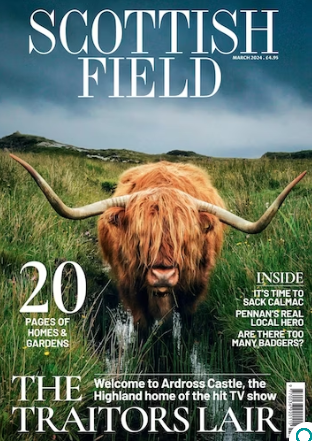People convicted of wildlife crimes should receive bigger fines and longer prison sentences than currently available says Scottish Land & Estates, the organisation which represents landowners and rural businesses.
The Scottish Government recently launched its consultation on wildlife crime, such as deer poaching, hare coursing and bird of prey persecution, and SLE says that those who undertake illegal acts should face strong penalties proportionate to the crime, with sanctions applied consistently and clearly to act as a real deterrent.
SLE also says that to successfully fight wildlife crime, education of what wildlife crime is and the impact, awareness of the possible maximum penalties along with more training and support for police officers to assist with detection are vitally important.
David Johnstone, chairman of Scottish Land & Estates, said: ‘We need to send out a clear message that wildlife crime of any kind is absolutely unacceptable, and these reckless acts will not be tolerated. That is why we are calling for longer prison sentences and bigger maximum fines for the most serious wildlife crimes, to act as a deterrent.
‘By providing clear guidelines to the courts on sentencing and by enabling courts to issue bigger penalties than currently available, we are confident that wildlife crime in Scotland will continue to decrease as it has over the past five years. Scotland’s wildlife continues to rely on the public, our members and the police to act as eyes and ears to ensure that these heinous crimes are stamped out.’
SLE also supports more imaginative and targeted sanctions including community payback orders when appropriate for less serious wildlife crimes that have less of an impact on a species and the environment.
Wildlife crime covers a huge spectrum of criminal activity and there are currently six specific wildlife crime priorities in Scotland and the UK which are:
1, badger persecution; 2, bat persecution; 3, raptor (birds of prey) persecution; 4, fresh water peal mussels; 5, deer and fish poaching and hare coursing; and 6, international trade of wild animals and plants.
Most wildlife offences can only be tried by a sheriff sitting alone. The most common penalty option is a fine of up to £5,000 and/or six months in jail. For badgers, there is a fine of up to £10,000/ 12 months in jail, or an unlimited fine and three years in jail. Deer penalties are different and operate on a scale, and a per deer basis.
The most recent Scottish Government figures show that recorded wildlife crime fell by 8% in 2017.
TAGS

